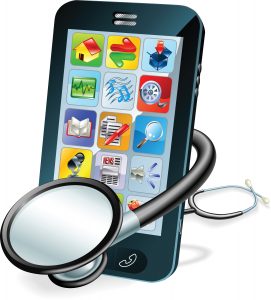
Many patients of New Orleans orthopedic surgeon Dr. Richard Meyer are eager to track and improve their health and progress before, during and after treatment. A digital fitness device – technology already owned by 1 in 10 Americans – provides a unique opportunity for patients to monitor their personal health data, ultimately empowering them to improve clinical outcomes.
With consumer sales soaring, fitness devices have the potential to transform orthopaedic care. If more people get involved in their care and get in better shape, then everyone wins–patients, physicians, and the entire health care system.
On the most popular health devices, the most common features were a pedometer and monitors for heart rate, sleep and caloric intake, although many other features are available.
Your New Orleans orthopedic surgeon finds that fitness devices can be applied across different levels of orthopedic care such as the following.
- Non-surgical patients can track behavior, activity levels and medication use and alter these factors to lose weight and maintain the best possible function in their extremities.
- Pre-operative patients can reduce risk for post-operative complications by reducing their weight, preventing diabetes through glucose monitoring, and identifying sleep disorders.
- Post-operative patients can evaluate rehabilitation progress and surgical outcomes by measuring walking distances and stairs climbed, and alter physical therapy for better recovery.
 If authorized by patients, this data also can be sent to their doctor and health care team, via apps that interface with Apple HealthKit, Google Fit, and Microsoft HealthVault and electronic medical record systems.
If authorized by patients, this data also can be sent to their doctor and health care team, via apps that interface with Apple HealthKit, Google Fit, and Microsoft HealthVault and electronic medical record systems.
With heightened emphasis on patient engagement and accountability, devices are an easy way for patients and physicians to share and document long-term activity. Take control of your health – call the office of New Orleans orthopedic surgeon Dr. Richard Meyer today to find out how!